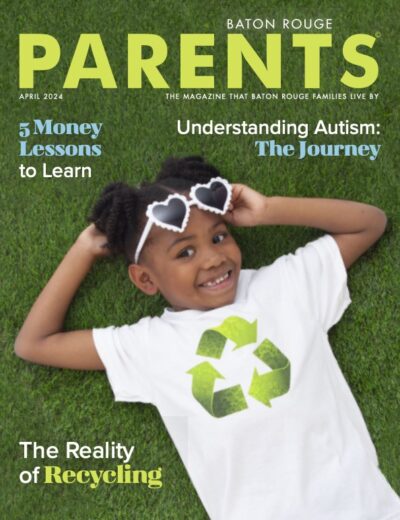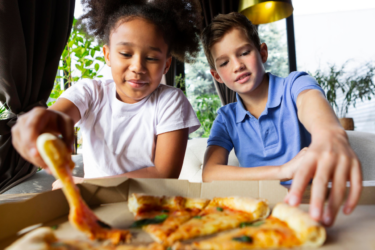
Preschool Prep
It’s a big day and a huge milestone is being reached! Your little scholar is off to preschool with a fresh haircut, new uniform, and a book bag filled with school supplies. Memories come flooding back to when he was born, his first birthday party, and each subsequent celebration. Tears of joy follow, and maybe, a tiny bit of doubt. Did we do all that we could do to prepare him? Can he count high enough, recite the alphabet fast enough, and make it to the potty briskly enough? Relax. Academics and potty training is not what makes a preschool proteégé.
But what does? When Joy Thornton of Zachary became a mom, she was not sure what her newborn needed to know, and by when. “I started talking to other moms and researching information on the Internet.” One great tool available for families is the Louisiana Birth to Five Early Learning and Development Standards (ELDS). The ELDS shows parents which academic standards are appropriate at each age. Using this as a guide, parents have a clear blueprint for modeling and teaching the right skills at the right age.
We know that boys and girls learn best through play. Dr. Cynthia DiCarlo, LSU Professor of Early Childhood Education and Executive Director of the Early Childhood Education Laboratory Preschool tells us that children “have a natural desire to know and to learn. And, parents can easily prepare their youngster for preschool success by simply supporting and promoting that intrinsic curiosity.” Dr. DiCarlo encourages parents to focus on intellectual goals versus academic goals. While academic goals concentrate on very specific skills that are practiced and memorized, intellectual goals and corresponding activities support children as they learn to predict, analyze, and question. “Parents, and those working in the early childhood profession, should provide fun experiences that support children to think critically and solve problems.” Need help? The Early Childhood Education Laboratory Preschool offers training to parents and educators.
Reading to your children is a great example of an intellectual activity. Ask them to predict how the story will end, analyze the illustrations for clues as to what is happening in the story, and question how each character is feeling and why. Local mom Jodi Falgoust says she has read to her daughters since they were born. “My youngest was in the NICU for awhile. I started reading to her there. I think it helped me bond with her.” Jodi’s children love books and sometimes select reading a good story as their choice for play time. In addition, playing games and singing songs that practice letter recognition and beginning sounds can also promote reading readiness, and create lifelong readers.
Do you want to teach your little ones how to problem solve? Do what Jodi does. “I make up math word problems. Like, mommy and daddy are laying on the bed. You come in and lay down with us. How many are in the bed now?” Counting can be great fun. Count fingers and toes, grapes in their snack bowls, and chairs around the table. Combining reading and math is easy. Read a counting book. Encourage your child to count the items in the book, touching each one as he counts. Feel like fine motor skills need improvement? Cutting with safety scissors, drawing with crayons, and playing with blocks and Play-Doh work to strengthen muscles of the hands while exploring their creativity.
It's common for children to develop different skills at different rates. Thornton notes that her children are very different learners. “The oldest was like a sponge, soaking up words and numbers,” says Thornton. The younger thrives doing independent play like Play-Doh, coloring, and using scissors. And, that is okay!
What is important is to challenge our children to do tasks for themselves. Mia Durden and her two-year-old son practice being independent everyday. “When my son asks me for a drink or toy, and it is something that is safe for him to do, I tell him to do it himself.” This, “just-right challenge,” is important. By letting your child do activities that are just slightly above what he can easily do, yet require a little bit of a stretch, his abilities are being used correctly and his independence
is maximized.
On that first day, when the little ones arrive at preschool and unzip their book bags, it will be easy to see crayons, glue, construction paper, and other school supplies. And, for those children who have had spent their early years exploring, experiencing, and creating; their book bags will also be filled with the social and emotional skills needed to create a life-long love of learning. So, breathe easy. By spending the critical years from birth-to-five by loving, enjoying, and communicating with your children, those sought-after educational skills are sure to follow. ■





